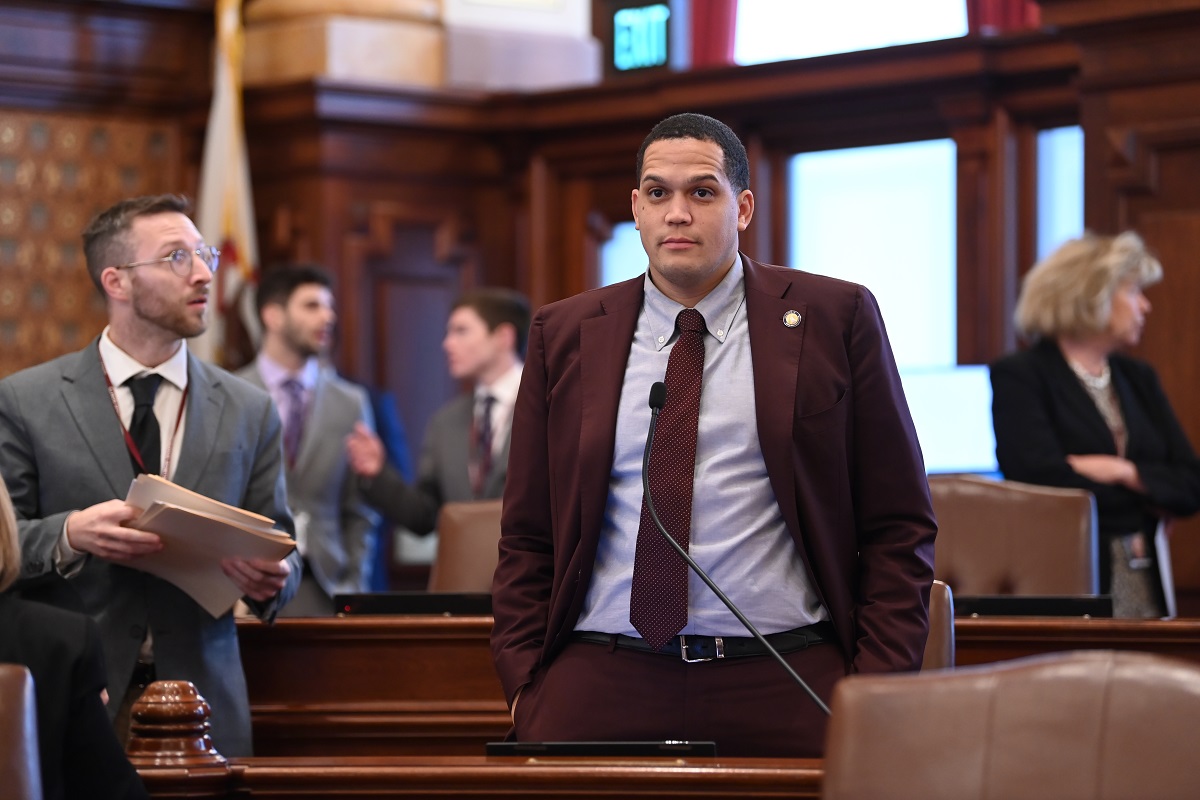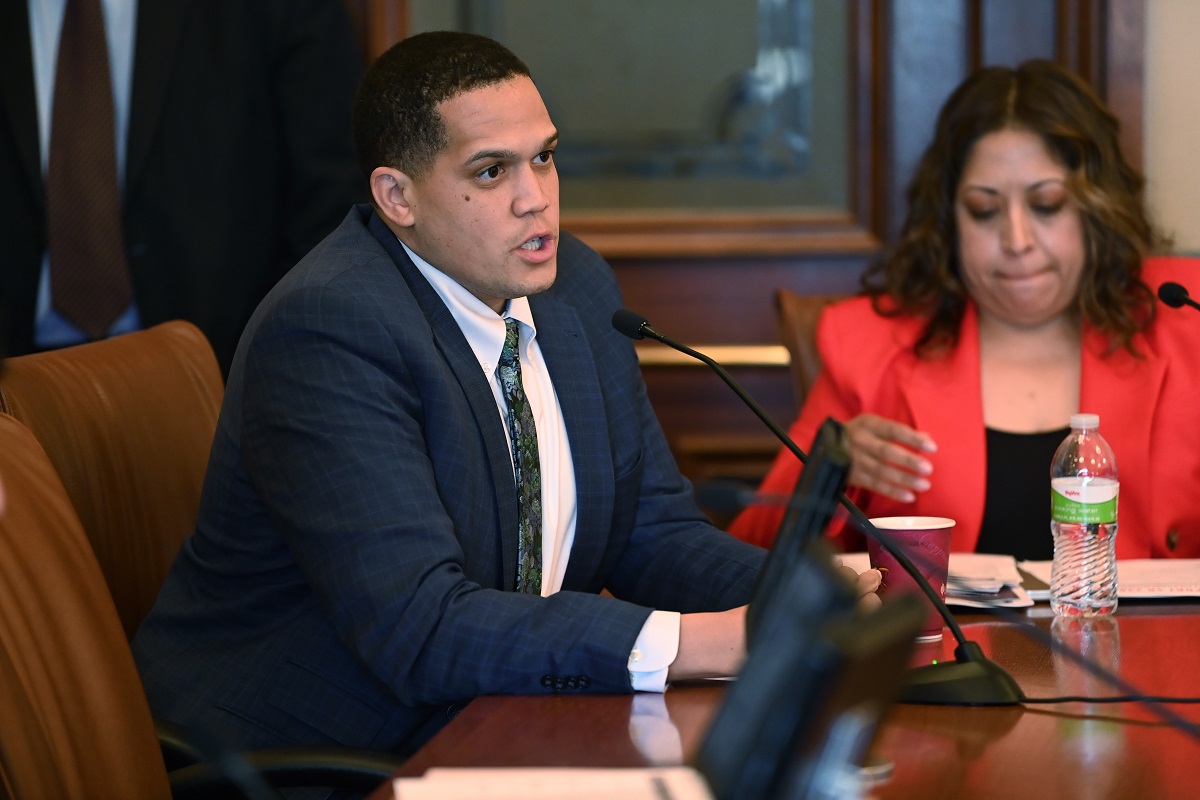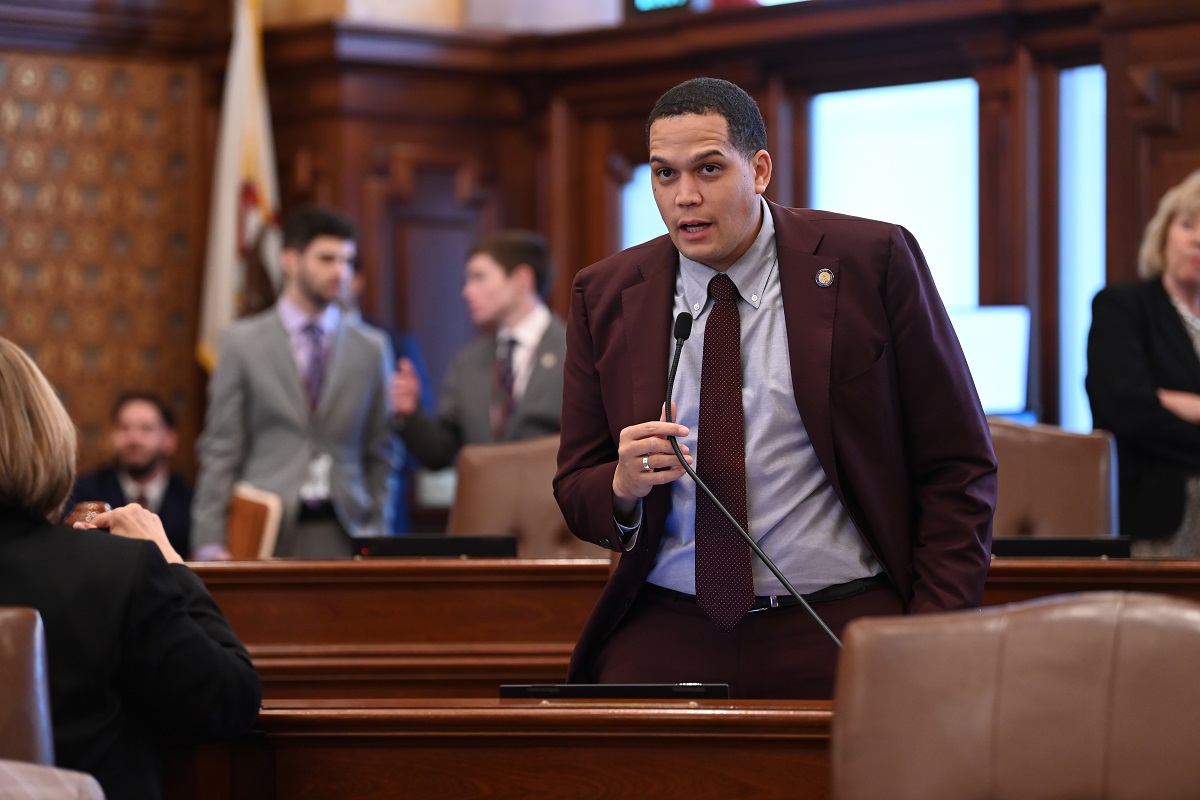State builds pathway to construction careers with $550,000 investment to HIRE360
- Details
- Category: Press Releases
 CHICAGO — As Illinois doubles down on efforts to grow a skilled construction workforce, State Senator Robert Peters was pleased to help HIRE360 of Cook County secure $550,000 to prepare local residents for careers in the construction and building trades.
CHICAGO — As Illinois doubles down on efforts to grow a skilled construction workforce, State Senator Robert Peters was pleased to help HIRE360 of Cook County secure $550,000 to prepare local residents for careers in the construction and building trades.
“Strong apprenticeships are the foundation of a strong workforce,” said Peters (D-Chicago), chair of the Senate Labor Committee. “This investment will give more Illinoisans the tools they need to start careers in the trades and help meet the demands of a growing industry.”
The Illinois Department of Commerce and Economic Opportunity awarded $19 million in grant funding through the Illinois Works Pre-apprenticeship Program to 38 organizations across the state. The purpose of the funding is to create more pathways for kids to access pre-apprenticeship programs and registered apprenticeships, which provide greater opportunities to secure lifelong careers in the construction trades.
Peters: Our juvenile justice system should focus on rehabilitation over punishment
- Details
- Category: Press Releases

SPRINGFIELD — In a major step toward reforming Illinois’ juvenile justice system, a measure from State Senator Robert Peters aims to raise the minimum age at which minors can be detained from 10 to 12 years old, making it clear the state is moving away from harsh detention practices and prioritizing rehabilitation.
“Our juvenile justice system should focus on rehabilitation over punishment,” said Peters (D-Chicago). “By raising the age at which a minor can be detained and emphasizing alternative methods, we’re giving young people a fair chance at reformation without subjecting them to the damaging effects of detention at an early age.”
Under Peters’ measure, arrest would only be used as a last resort and under strict conditions. Minors could only be detained if there is probable cause that they committed a crime and immediate detention is necessary, or if they have repeatedly failed to appear at scheduled hearings.
Senate committee hears Peters-backed legislation aimed at providing tax credit for affordable housing development
- Details
- Category: Press Releases
 SPRINGFIELD — On Wednesday, the Senate Revenue Committee held a subject matter hearing on a measure spearheaded by State Senator Robert Peters that would address Illinois’ affordable housing crisis by creating a state-level housing tax credit, unlocking millions in federal funds and driving new private investment in housing development.
SPRINGFIELD — On Wednesday, the Senate Revenue Committee held a subject matter hearing on a measure spearheaded by State Senator Robert Peters that would address Illinois’ affordable housing crisis by creating a state-level housing tax credit, unlocking millions in federal funds and driving new private investment in housing development.
“Senate Bill 62 is about building homes, creating jobs and making sure working families across Illinois can afford a place to live,” said Peters (D-Chicago). “This is a responsible, proven model that brings everyone to the table – government, private investors and community developers – to deliver the housing our communities urgently need.”
Peters’ measure would establish the Build Illinois Homes Tax Credit, which mirrors the federal Low-Income Housing Tax Credit and helps finance new affordable rental housing. Administered by the Illinois Housing Authority and the Chicago Department of Housing, the credit would be awarded to affordable housing developers who already qualify for the federal LIHTC and are determined to need additional funding to move their projects forward.
Peters’ measure to overhaul state’s mental health crisis response system
- Details
- Category: Press Releases
 SPRINGFIELD — Illinois could reshape the way agencies respond to mental health crises and offer critical services to those in need, thanks to a measure from State Senator Robert Peters that would ensure better coordination, training and accountability in the delivery of behavioral health services.
SPRINGFIELD — Illinois could reshape the way agencies respond to mental health crises and offer critical services to those in need, thanks to a measure from State Senator Robert Peters that would ensure better coordination, training and accountability in the delivery of behavioral health services.
“Mental health care is public safety,” said Peters (D-Chicago). “We have a responsibility to respond to crises with care, not punishment. That means giving communities the tools, training and coordination they need to support people when it matters most.”
Under Peters’ measure, the implementation deadline of the Community Emergency Services and Support Act would be extended until July 1, 2027, ensuring a more thorough and thoughtful rollout of critical services. The initiative comes at a time when mental health services are under increasing strain, with more people experiencing mental health crises and a heightened demand for accessible care.
In addition to providing a clear roadmap for CESSA implementation, the bill would permit new training for mobile mental health relief teams and an updated data collection structure, transforming how mental health emergencies are handled and offering a strong framework for individuals in crisis and the organizations that serve them.
“This bill isn’t just about extending a deadline – it’s about handling mental health crises effectively and appropriately,” said Peters. “Building a stronger foundation for how we respond to these emergencies ensures every person in crisis is met with dignity, professionalism and the help they need to recover.”
Senate Bill 2500 passed the Senate Wednesday and heads to the House for further consideration.
More Articles …
Page 13 of 96





